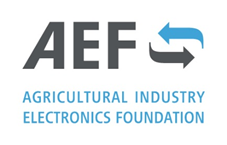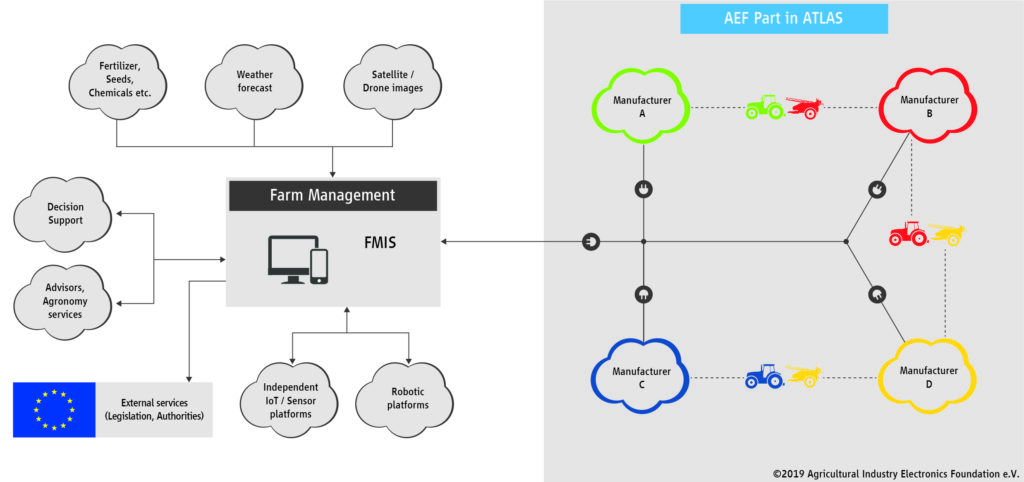
AGRICULTURAL INDUSTRY ELECTRONICS FOUNDATION
The Agricultural Industry Electronics Foundation (AEF e.V) is an independent organization funded by international agricultural machinery manufacturers and associations in 2008. Today 220 Ag business-related companies and universities provide technical and procedural methods to enable open communication and interfacing between electronic systems of different machinery from independent manufacturers mainly based on ISOBUS.
AEF intends to provide the necessary resources and appropriate know-how so that important technical challenges concerning electronic and electrical systems in agricultural technology and farming can be jointly addressed by the industry to the benefit of the end-customer.
For more details visit their website.
ROLE WITHIN THE PROJECT: The machinery manufacturers want to ensure that agricultural vehicles, as major data generators and data consumers, can integrate seamlessly in the digital agricultural eco-system. AEF will act as an umbrella organization for the Ag Industry independently if global player or SMEs. It’s essential to combine the experience and strength of the member companies. AEF will set up a new internal Project Team to participate this subsidy project with the topic of IoT vehicle and architecture design. This working team will consist of core member companies, general member companies as well as dedicated employees hired for the subsidy project. The team will collaborate with other AEF project teams working on communication standards like: Testing, Data Management, High-Speed ISOBUS and Wireless in-field communication. The Ag industry manufacturer Claas, John Deere, AGCO, CNH, Krone, Kubota, SDF, Sontheim Industrie Elektronik, Farmfacts, DKE-Data, Anedo and Ningupex are integrated as Linked-Third-Parties under the umbrella of AEF into the ATLAS project.
Main objectives for AEF in ATLAS are:
- Provide a standard for data exchange between cloud solutions that allows interconnectivity between available platforms and systems,
- Aligned with existing ISOBUS standards and AEF guidelines as well as available standards and technologies ensuring a safe and secure environment,
- Use or develop standards which guarantees interoperability between different systems and machines (Sensor2C, M2M, M2C),
- Ensure global availability of the solutions to avoid parallel approaches between different regions,
- Focus on the (end)customer expectations for data exchange between systems,
- The standard(s) must be freely available and independent from any commercial interest.


